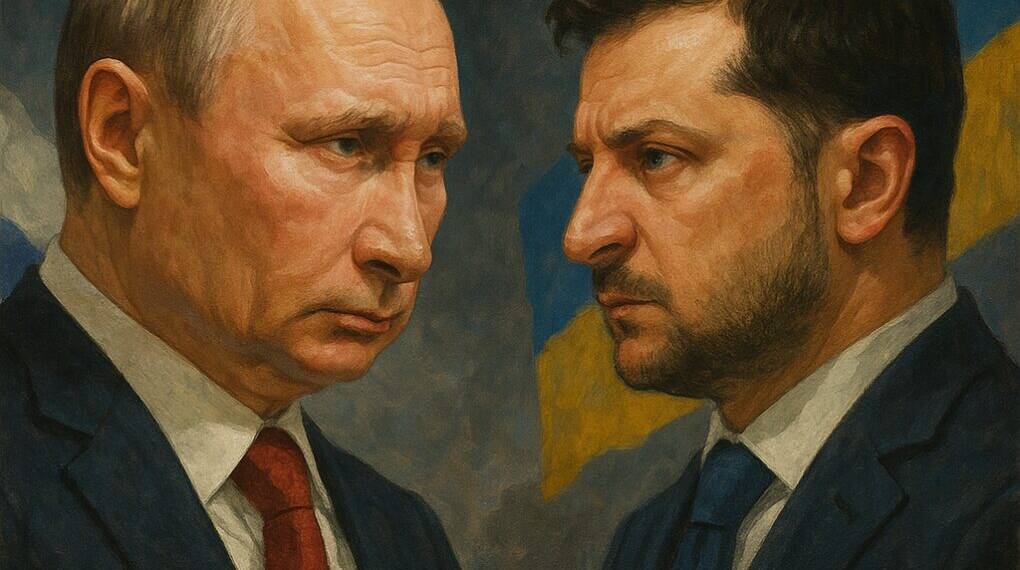Nearly five months into U.S. President Donald Trump’s second term, his promise to swiftly end the Russia-Ukraine war remains unfulfilled. The conflict, now in its fourth year, rages on with unrelenting intensity, underscored by Russia’s record-setting 728-drone attack on Ukraine on July 10, 2025.
Despite Trump’s willingness to forgo NATO membership or U.S. security guarantees for Ukraine, Russian President Vladimir Putin has offered no significant concessions, leaving negotiations stalled.
A War Without End
Russia’s recent escalation, including the massive drone assault targeting Kyiv, Lutsk, and other Ukrainian regions, highlights the Kremlin’s determination to press forward. The attack, which killed at least nine people and strained Ukraine’s air defenses, came hours after Trump criticized Putin and pledged more defensive weapons to Kyiv. Yet, Putin’s refusal to entertain serious peace talks—despite an unconditional ceasefire proposed by Trump and accepted by Ukraine—suggests a deeper strategic calculus.
Freedman, Emeritus Professor of War Studies at King’s College London, argues that Putin’s persistence stems from a belief that victory, however costly, remains achievable. Russian forces have made incremental advances in recent months, particularly in the Donetsk region, bolstering the Kremlin’s confidence.
Putin’s strategy hinges on outlasting Ukraine’s resolve and Western support, betting that prolonged attrition will force Kyiv to capitulate.
The Kremlin’s Calculus
Putin’s reluctance to negotiate meaningfully reflects several key factors:
- Military Momentum: Recent Russian gains, though limited, have reinforced Putin’s belief that sustained pressure can erode Ukrainian defenses, especially as Kyiv struggles with strained air defenses and munitions shortages.
- Economic Resilience: Despite Western sanctions, Russia has maintained revenue through oil and gas exports, particularly to nations like India and China. This financial lifeline sustains the war effort, prompting Ukrainian President Volodymyr Zelenskiy to call for “biting sanctions” on Russia’s income sources.
- Geopolitical Leverage: Putin perceives the war as a broader contest with the West. By rejecting Trump’s ceasefire and continuing attacks, he signals defiance and seeks to exploit perceived divisions in Western resolve, particularly as Europe crafts new sanctions and Germany pledges more aid.
Why Peace Remains Elusive
Freedman contends that the Kremlin will only consider ending the war when victory becomes demonstrably unattainable. For now, Putin sees no such barrier. Russia’s recent recruitment plans, including up to 1 million Indian workers by 2025 to bolster its economy, reflect confidence in sustaining the war effort.
Meanwhile, Ukraine’s resilience—bolstered by Trump’s renewed commitment to defensive weapons and German Chancellor Friedrich Merz’s pledge of air defense systems—complicates Putin’s strategy but has yet to deter him.
The war’s trajectory suggests a prolonged stalemate unless significant shifts occur either a decisive Russian setback or a collapse in Ukrainian or Western support. Trump’s cryptic remarks about a “surprise” for Putin and his potential support for 500% tariffs on Russian exports could signal a tougher U.S. stance, but their impact remains uncertain.
A Path Forward?
For Ukraine and its allies, the challenge is to convince Putin that his goals are unattainable. This requires sustained military support, including air defense systems to counter Russia’s escalating drone and missile strikes, and intensified economic pressure through sanctions targeting Russia’s energy exports. Zelenskiy’s upcoming talks with U.S. envoy Keith Kellogg in Rome, alongside potential Vatican-hosted peace discussions, underscore the diplomatic urgency, but Russia’s rejection of such initiatives suggests a long road ahead.
As Freedman notes, “The Kremlin will end its war in Ukraine only when it knows that victory is impossible.” Until that reality dawns, Ukraine braces for more nights in air raid shelters, and the international community grapples with a conflict that defies easy resolution.








